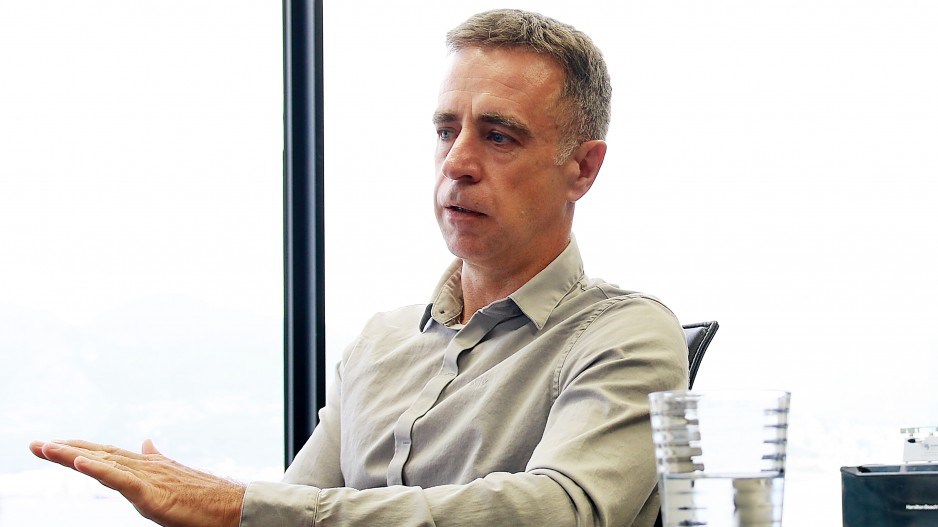The stock market has not been kind of late to Trevali Mining Corp. (TSX:TV).
The Vancouver-based zinc miner has doubled in size since acquiring two zinc mines from Glencore Plc in 2017, bumping it to mid-tier miner status, with a global head count of about 2,000.
It now has four operating zinc mines – one in New Brunswick, one in Peru and two in Africa (Namibia and Burkina Faso).
Normally, that kind of production growth would be a good reason to hold onto a mining stock. But the company’s share price has recently fallen to below $0.20 from $1.68 at the end of January 2018.
Trevali is not the only zinc miner to experience a stock market pummelling. Glencore PLC (LON:GLEN), one of the world’s largest zinc producers, has suffered a 45% decline in share value since January 2018.
Copper prices are also down to a two-year low – a strong indicator of a global economic slowdown.
But Trevali’s stock price drop also appears to be partly driven by shareholder dissatisfaction with the company’s performance since it acquired the two Glencore mines.
“I think Trevali is oversold; I think it’s well owned,” Rick Rule, president of Sprott U.S. Holdings, told BNN Bloomberg in March.
By “well owned,” Rule means that a lot of the stock owners are “mission-specific” shareholders who understand mining, as opposed to generalist investors.
Rule added he doesn’t own Trevali stock because he’s “a little bit nervous about the broad economy.”
In other words, a global recession would result in a lower demand for zinc, copper and other industrial metals. Trevali would then have to reduce its costs and increase its grades to make a profit with lower zinc prices.
To do that, the company will need an experienced CEO to turn things around, which it now has.
Earlier this year, Trevali’s CEO and chairman resigned, and a new management team is now in place. In April, Ricus Grimbeek, former COO of Vale Base Metals, joined Trevali as the company’s new CEO.
Most of the executive team is also new and has been expanded to include three new positions – chief sustainability, technology and commercial officers, a reflection of Grimbeek’s belief that technology and sustainability are keys to a successful modern mining operation.
“We’d be one of the first mining companies with a chief sustainability officer,” Grimbeek said.
Grimbeek’s mining experience is extensive. He started out underground as a coal miner in South Africa and later earned a degree in mining engineering. Over the years, he has supervised or managed mining operations in almost every space imaginable – from manganese and platinum mines to bauxite and diamond mines.
Grimbeek, who was president and COO for BHP Billiton Diamonds at the Ekati mine in the Northwest Territories, acknowledges that Trevali has not lived up to shareholder expectations. He has plans to optimize the company’s operations.
“It’s like anything – you get rewarded when you deliver what you say you’re going to,” he said. “And so I think the company struggled a bit over the last 18 months to deliver on what they promised they would be doing.
“On the flip side, for the last two quarters, we’ve produced really good results. We’ve been on target – or higher than target – for both cost and production. And that’s what we’ve got to keep on doing.”
While at Vale Base Metals, Grimbeek helped cut costs by $130 million in one year. He hopes to accomplish something similar at Trevali, which he describes as four small mining companies operating four mines. His goal is to get them all operating more as a single company.
The company is also investing in exploration at its existing mines to try to identify higher-grade deposits and extend mine life.
Trevali is a bit unusual for a Vancouver mining company. Most mining and exploration companies here are in gold, copper, silver or metallurgical coal. Trevali, founded in 2007 with a single mine in Peru, is a pure-play zinc miner.
Zinc’s primary market is for strengthening steel. In 2016, commodities analysts began warning of a looming zinc shortage and soaring prices. In 2018, it hit US$1.60 per pound, but it has since dropped to about US$1 per pound.
Mickey Fulp, who publishes the Mercenary Geologist, said zinc’s downward trajectory is only partly attributable to global economic performance. It’s also a supply issue. Three zinc mines closed between 2015 and 2016, he said.
“That led to the idea we were going to face zinc supply shortages,” Fulp said. “So all these new projects popped up.
“Year-over-year, production’s increased 2.1%. You get these high prices. Well, the cure for high prices is high prices, so logically it went back down. And it’s been exacerbated, no doubt, by the continuing trade dispute between the U.S. and China and the thoughts of a slowing economy.”
But the long-term demand for zinc and other industrial metals is believed to be strong. Renewable energy, electric vehicles and the general decarbonization and electrification effort will drive demand for industrial metals.
Grimbeek said there may also be an increased demand from manufacturers of zinc-air batteries, as well as in agriculture, as a soil supplement.
Scotiabank’s (TSX:BNS) commodity price index foresees zinc prices around US$1.20 per pound through 2019 and 2020. Grimbeek said he thinks he can get Trevali operating at a profit at $1 per pound. And he doesn’t seem overly worried about the prospect of a global slowdown.
“I always believe you can’t waste a good recession. It’s the time when I think there’s lots of value in the market. This is the time to work together to become more efficient.”




